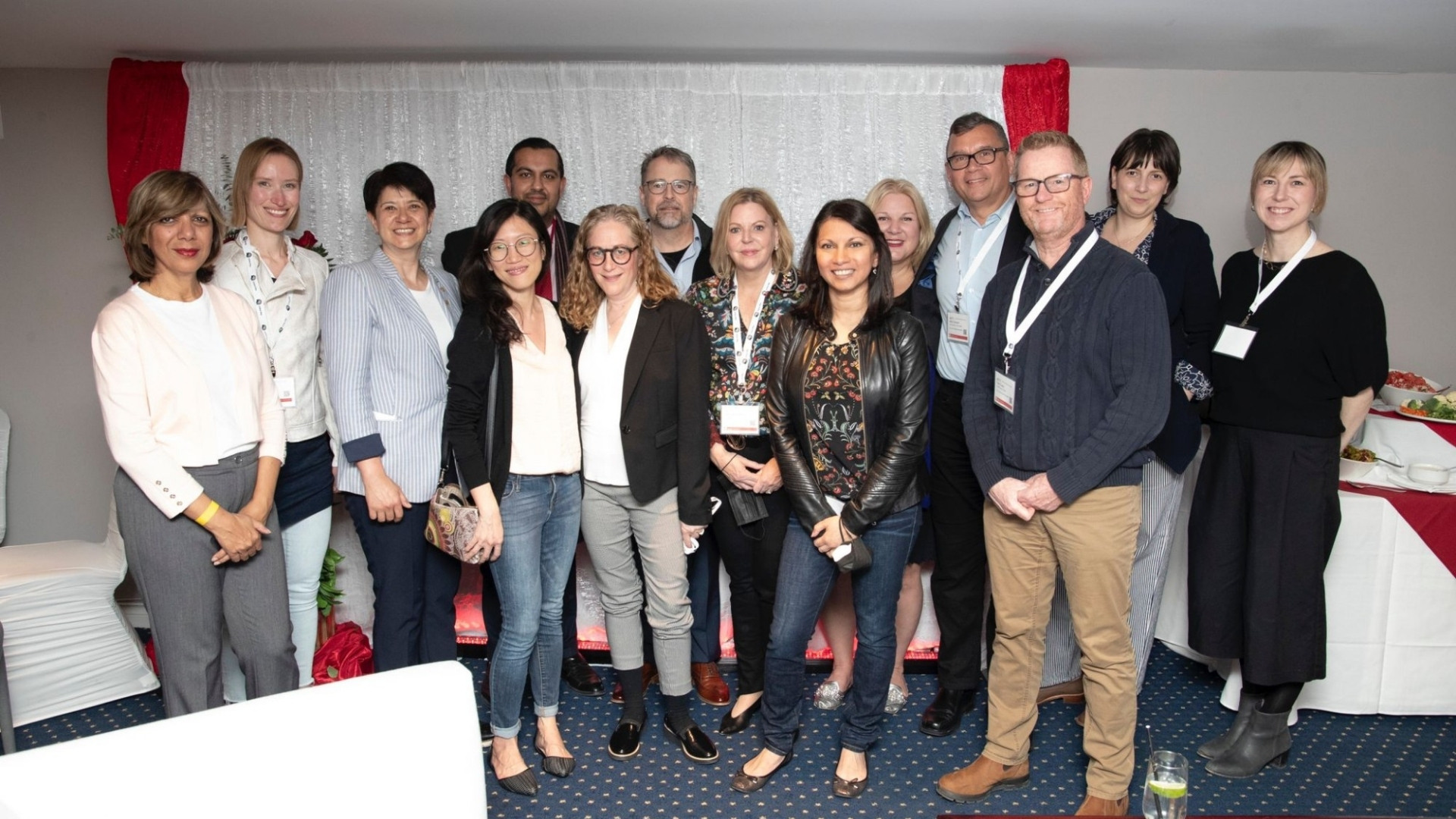United Way British Columbia hosted one of the first major in-person conferences on seniors health and support since before the pandemic began in 2020. The Provincial Summit on Aging (hashtag: #SummitOnAging2022) took place in Richmond, BC during the last week of April 2020. This third biennial summit brings together Community-Based Seniors’ Services (CBSS) organizations, older adults, family and friend caregivers, academia, and government representatives to discuss and collaborate on current issues and innovations in healthy aging.
Members of BCCPA / EngAge BC leadership team were excited to attend this important gathering. EngAge BC were sponsors and we hosted a booth in the trade show area promoting Route 65 and the Seniors Living Expo & Job Fair. From there we were able to reconnect with many friends across the sector and meet many new ones.
The opening speakers included an appearance by Canada’s Minister of Seniors Kamal Khera via video link, and by B.C. Parliamentary Secretary for Seniors’ Services and Long-Term Care Mable Elmore. PS Elmore has been leading the Ministry of Health’s important initiative to recruit internationally-educated nurses.
Everyone who attended was sure to have a unique experience based upon the content of the many presentations, plenary sessions and conversations with the organizers and fellow delegates. As representatives of B.C.’s leading advocacy organization for long-term care and assisted living, as well as privately delivered home health and independent living (via EngAge BC), attending the Summit helped us to see where the interests of community-based services and other groups intersected with those of seniors living and wellness providers.
Here are 5 quick takeaways from the Summit on Aging.
- Seniors matter — now more than ever
The day the Summit began, Statistics Canada released new census data showing the fastest growing part of Canada’s population were seniors. It resulted in multiple media requests for BCCPA CEO Terry Lake. The coincidence was not lost on us that the country’s biggest news story of that day was precisely why so many of us were together at UWBC’s Summit. Together we have an important mission to support older adults and get our communities better prepared for our aging demographic.
- Collaboration and problem solving are the way forward
One could not help but be impressed by the breadth of knowledge and experience among Summit on Aging delegates during those 3 days. Representatives of seniors organizations, health, government, academia and community-based services were all there to learn and to contribute. Clearly, it is our collaborations that will influence policies and practices toward supporting older adults, and making sure health care and community-based supports meet the expectations of all Canadians.
- Social prescribing: old idea with new meaning
UWBC describes Social Prescribing as when primary care physicians or other health practitioners refer senior patients to a community-based Social Prescribing program. The concept has gained strong support in places like the United Kingdom, where the first ever office of the Minister of Loneliness was established in 2018. Loneliness has massive, incalculable costs to society, and Social Prescribing is a way to keep older adults healthier, happier, and less reliant on the healthcare system. BCCPA has through numerous initiatives attempted to strengthen awareness of the risks of loneliness and isolation, and has even undertaken to advocating for developing age-friendly communities (see: Care Hubs). Social Prescribing needs to be promoted more widely than it is today, including the good work being done by UWBC and community-based service providers.
- Seniors’ future is connected (by tech)
The COVID-19 pandemic has taught us all about the value of online and video conferencing tools. For many older adults with rudimentary computer and technology skills, Zoom meetings and FaceTime calls can still be a challenge. This is changing over time, however, and many health and community services are being enhanced by connections over the internet, on tablets, smart phones and home computers. Technologies such as Care2Talk, for example, are new age-friendly applications. They cannot substitute in-person connections, but they can bridge the distance between a senior and a friend or healthcare provider. Watch this space as seniors become more tech savvy.
- Quality long-term care is important
It gets repeated a lot that when surveyed people indicate strongly that they do not want to live in long-term care. Without question, the pandemic exposed vulnerabilities that must be addressed. However, there can be no denying that LTC remains a vital service for individuals and families in their time of need. It was heartening therefore that even critics of long-term care conceded that it is important to make it as good as it can be, instead of clinging to the notion that these homes do not have an important role within the continuum of care. Again, this can be met by having the sector work together.
BCCPA and EngAge BC would like to thank Kahir Lalji and his fantastic team at United Way British Columbia for hosting a great event and inviting us to participate.




